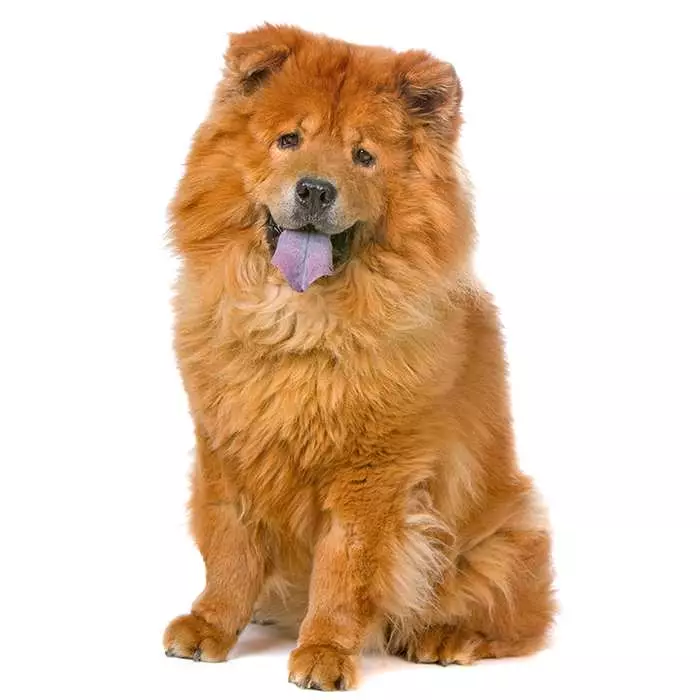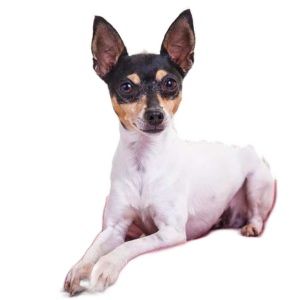Shih Tzu
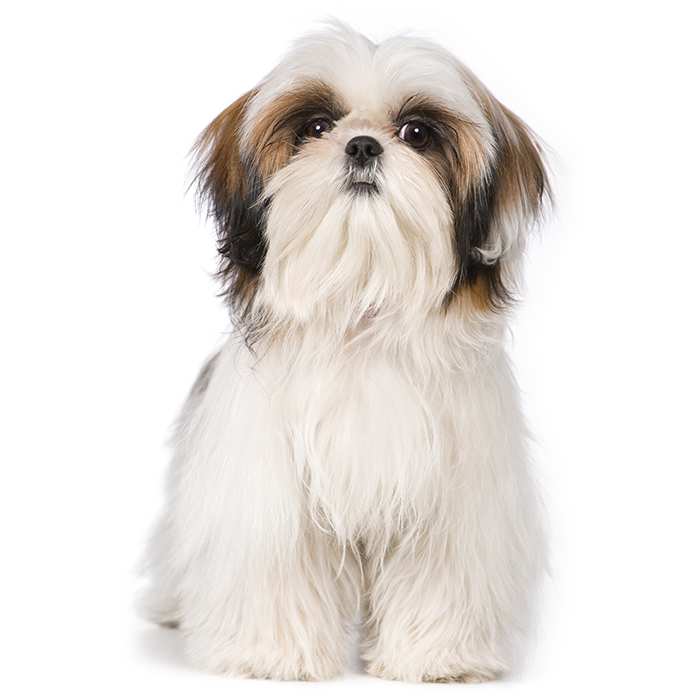

| Recommended for | Families |
| Breed Classification | Toy |
| Other names | Little Lion |
| Lifespan | 10-16 years |
| Size | Small |
| Temperament | Intelligent |
| Intelligence | Average |
| Tendency to bark | Average |
| Maintenance Level | Medium – high |
| Health Risk | This breed has an around average probability of having health issues in its lifetime, hence it is one of the less expensive breeds to insure. |
Insuring a Shih Tzu?
Get our award-winning Nose-to-Tail Cover with up to $30k annual benefit limit, up to 90% of eligible vet bills back, and no sub-limits.
Get a quick quote
Is this breed right for you?
Try our breed selector quiz to find out your best matching breed!
Insuring a Shih Tzu?
Get our award-winning Nose-to-Tail Cover with up to $30k annual benefit limit, up to 90% of eligible vet bills back, and no sub-limits.
Get a quick quote
Breed history of Shih Tzus
Originating in China, and related to a group of ancient breeds of canine, Shih Tzu means ‘lion dog’. It is generally believed that the breed was developed to resemble the guardian lions that can be viewed in ancient Chinese, art, masonry and architecture.
It isn’t known precisely how the breed came into being but it is widely thought that the modern day Shih Tzu is a mix of the Lhasa Apso from Tibet and the Pekingese. Small toy dogs were bred for Chinese royalty as far back as 800 BCE as it was very fashionable to be seen with a small dog. It is for this reason that it is believed that the Shih Tzu was bred specifically to resemble a lion, adding to its value as a royal accessory.
For many years the Chinese refused to share their unique breeds of dog with the rest of the world and this is why it wasn’t until the 1930’s that the Shih Tzu first came to Europe. The first breeds arrived in England and Norway and they were initially known as ‘Apsos’ or as the ‘chrysanthemum dog’ in England. The name Shih Tzu became official in 1935 thanks to the Shih Tzu Club in England.
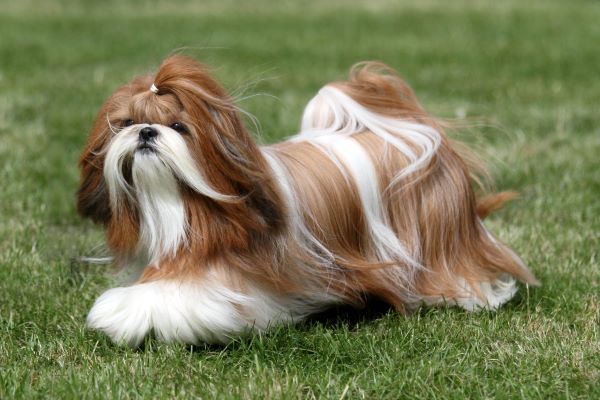
Physical description of Shih Tzus
Shih Tzus are small dogs with a long sleek coat and sturdy build. They have large, dark eyes and a distinctive under-bite that is a trademark of the breed.
You’ll find Shih Tzus in a wide range of colours, including whites, blacks, gold, brown and grey. They also come in various shades of these colours and can be a mix of two or three colours, depending on the coats of their parents.
| Weight range | 5 to 7.5 kg |
| Height range | 20.3 to 27.9 cm |
| Colours | Wide range |
| Coat length | Long |
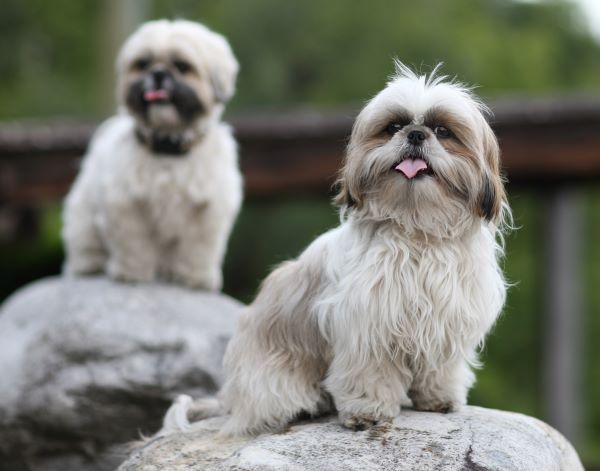
Shih Tzu personality and temperament
Shih Tzus are happy, friendly and clever little dogs. Highly affectionate, chilled out and relaxed, they make great companions and apartment living suits them fine.
Shih Tzus need a good level of human or dog contact to keep them happy. They love to play and will stay playful until old age. They have a bubbly, outgoing nature, and are focused on pleasing their owners.
Because the Shih Tzu has been bred for its attractive features and toy size, the breed is often subject to being spoilt and can develop bad manners or aggressive tendencies as a result. Through whining and barking, Shih Tzus will usually get what they want.
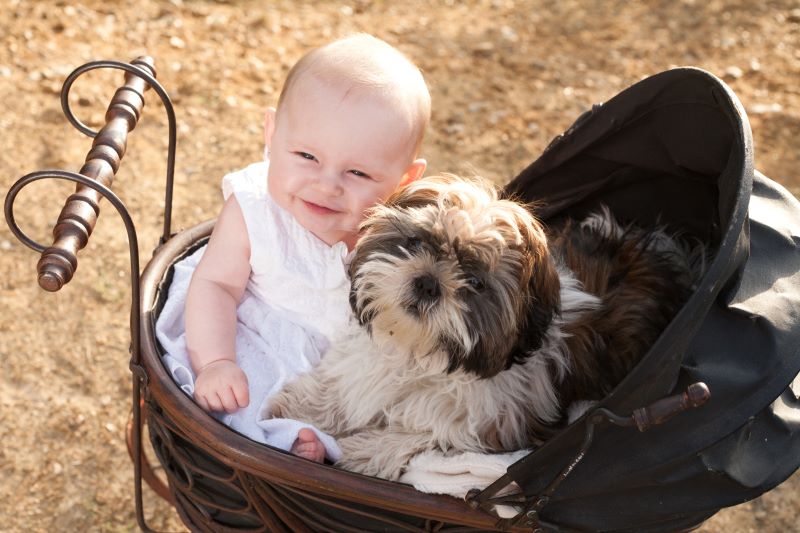
Shih Tzus with kids and other pets
The Shih Tzu is a very loyal dog that is generally great with children. However, younger children have been found on occasion to provoke an aggravated response, such as nipping and barking, if not properly supervised with the breed.
They generally get along with other dogs very well with a little bit of early and consistent socialisation.
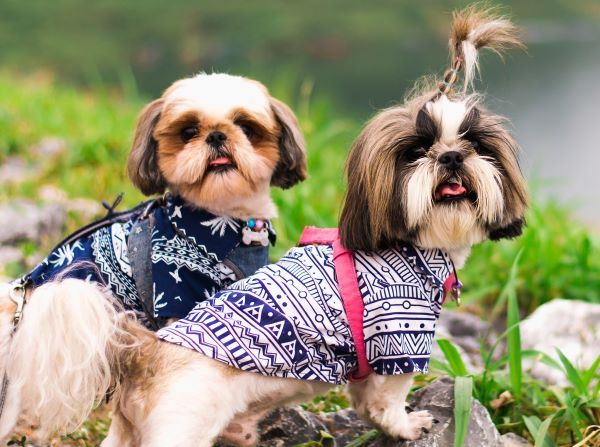
Shih Tzu training and exercise
Bred to be a little companion, Shih Tzus don’t need much exercise; a short walk and indoor playtime will keep them happy. They are susceptible to the heat, so it’s recommended to keep them indoors and avoid too much play during the warmer weather to prevent breathing problems.
Shi Tzus are good dogs to train as they obey basic commands; training methods based on praise and rewards work best. Consistent discipline and simple, clear communication is key, otherwise behavioural issues can develop in the breed. If effective training doesn’t occur and discipline not maintained, growling, biting and yapping habits can quickly develop.
| Energy level | Medium |
| Exercise requirements | Low |
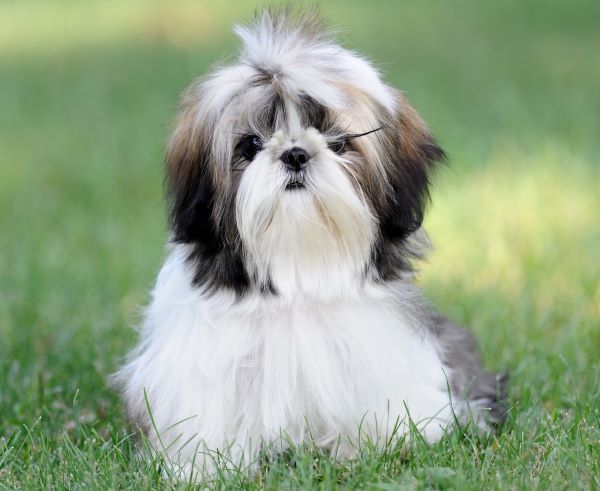
Shih Tzu feeding and nutrition
The Shih Tzu should do well on a high-quality, balanced diet that is appropriate to the dog’s age (puppy, adult, or senior), size and activity level.
If you feed a wet or raw diet, it’s a good idea to tie up the facial hair with a clip or scrunchy while your Shih Tzu eats. Otherwise, they’ll end up with food in their fur.
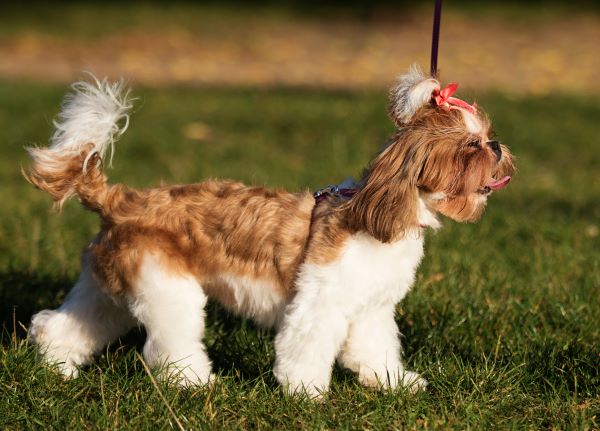
Shih Tzu care and grooming
Few coats are as beautiful as that of a well-groomed Shih Tzu. But grooming this breed isn’t all about vanity; if the Shih Tzu isn’t brushed and groomed regularly, skin problems can arise.
To reduce the time needed for grooming, the Shih Tzu’s coat can be clipped into a “puppy trim”. Shih Tzus with a long coat require daily brushing and frequent maintenance, or the fur will grow beyond the feet and drag along the ground.
Their facial hair can grow very long, which can make them look like lions. The hair on the top of the head should be trimmed short or tied up into a topknot to protect the Shih Tzu’s eyes from being irritated.
Health issues for Shih Tzus
- Hypothyroidism, also called “underactive thyroid”, occurs when the thyroid gland doesn’t produce adequate amounts of thyroid hormone, resulting in a slower metabolic rate. Some symptoms of hypothyroidism include abnormal weight gain, dry skin, hair loss, ear infections, and lethargic behaviour.
- Intervertebral Disk Disease is a condition that occurs when the disc between the vertebras becomes damaged, causing swelling and leaking. Common symptoms include: inactivity or lethargic behaviour, shivering, limping, or the inability to bend down to eat. If you notice these signs, get in touch with your vet.
- Brachycephalic Airway Obstruction Syndrome (BAOS) refers to the set of respiratory disorders that commonly affect the brachycephalic breeds. The typical symptoms of BAOS are breathing difficulties, including noisy breathing, frequent panting, snoring and mouth breathing. It is a major concern in hot Australian weather and can result in attacks of severe respiratory distress.
- Hip Dysplasiaoccurs when the ball of the hip joint does not develop normally and as a result fails to fit snugly into the hip socket, leading to possible lameness over time.
- Portosystemic Shunt of the Liver is when an abnormal connection forms in between the portal vein or one of its offshoots and another vein, causing clood to bypass or ‘shunt’ the liver. It’s usually caused by a birth defect and symptoms include poor muscle development or stunted growth. Disorientation is another sign of portosystemic shunt of the liver.
Not all conditions are covered by Pet Insurance. For details of Bow Wow Meow Pet Insurance cover, refer to the Product Disclosure Statement.
What do Shih Tzu owners claim for the most?
- Otitis Externa
- Corneal Ulcer
- Skin Allergy
- Mass Lesion
- Eye (ocular) Anomaly
Thinking about insuring a Shih Tzu
Thinking about insuring a Shih Tzu
Learn moreThinking about insuring a Shih Tzu
Learn moreFree engraved pet ID tag on sign up3
Customer Satisfaction
21 day cooling off
Easy to use Pet Portal

GapOnly® in vet claims
MORE INFORMATION
The Shih Tzu Club Victoria: http://shihtzuclubvic.com/
The American Shih Tzu Club: http://americanshihtzuclub.org/
The Shih Tzu Club UK: http://www.theshihtzuclub.co.uk/

